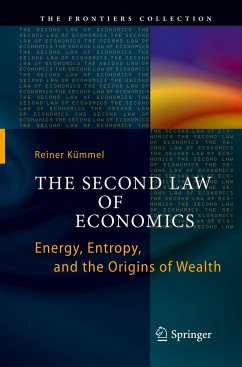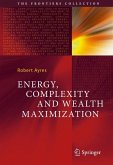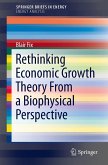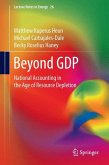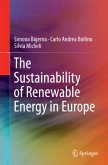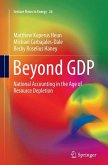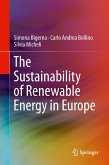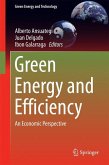Nothing happens in the world without energy conversion and entropy production. These fundamental natural laws are familiar to most of us when applied to the evolution of stars, biological processes, or the working of an internal combustion engine, but what about industrial economies and wealth production, or their constant companion, pollution? Does economics conform to the First and the Second Law of Thermodynamics? In this important book, Reiner Kümmel takes us on a fascinating tour of these laws and their influence on natural, technological, and social evolution. Analyzing economic growth in Germany, Japan, and the United States in light of technological constraints on capital, labor, and energy, Professor Kümmel upends conventional economic wisdom by showing that the productive power of energy far outweighs its small share of costs, while for labor just the opposite is true. Wealth creation by energy conversion is accompanied and limited by polluting emissions that arecoupled to entropy production. These facts constitute the Second Law of Economics. They take on unprecedented importance in a world that is facing peak oil, debt-driven economic turmoil, and threats from pollution and climate change. They complement the First Law of Economics: Wealth is allocated on markets, and the legal framework determines the outcome. By applying the First and Second Law we understand the true origins of wealth production, the issues that imperil the goal of sustainable development, and the technological options that are compatible both with this goal and with natural laws. The critical role of energy and entropy in the productive sectors of the economy must be realized if we are to create a road map that avoids a Dark Age of shrinking natural resources, environmental degradation, and increasing social tensions.
From the reviews: "It is no easy task to write a book that is targeted at a broad audience and merges essential concepts of thermodynamics, statistical physics, and economics. However, theoretical physicist Reiner Kümmel succeeds in doing just that with The Second Law of Economics: Energy, Entropy, and the Origins of Wealth. The book discusses the impact of two fundamental laws of nature-energy conservation and entropy production-on the creation and growth of wealth....[The author] argues in a clear and simple way that energy conversion is an essential force in wealth creation and a force to be reckoned with in the crafting of economic policy.... "Overall, The Second Law of Economics is accessible and quite enjoyable, in part because of the subtle ironic tone Kümmel uses in some places. He points out that, for an interdisciplinary field like economic thermodynamics, even PhD scientists can make naive observations....Besides physicists and economists, researchers and policymakers concerned with resource conservation and how a society should be economically organized in the future can benefit from The Second Law of Economics. After all, understanding that law now can help us guarantee the prosperity of future generations." --Physics Today, December 2011

